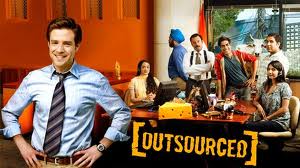A new show is coming out on NBC station. You’ve probably heard of it. It’s called “Outsourced” and already my e-mail box is filling with questions from clients about the show.
“Should I discuss it with my team? What do you think about it? Will it be funny or sad?”
In my world, the world of working with offshore teams between India and the US, difficult conversations are par for the course, and I can understand why. Sensitivities exist on both sides, not to mention the political hot buttons that the very word “outsourcing” seems to push. My American clients are often resentful of the decisions that upper management has made to lay off their colleagues and send the jobs to India. My Indian clients might resent all the resentment that is dumped on them as individuals when they are just doing their jobs. Both sides experience frustration over knowledge transfer, differing communication styles, and miles of ocean between them.
To add to that stress, many of these teams never meet face to face, allowing latent stereotypes to breed more rampantly. If you can’t see the whites of someone’s eyes trust can be hard to muster.
The question keeps coming up now that NBC’s show is out, will the show make things worse or better? Will it be funny or offensive? Will it be accurate or stereotypical?
Well, think about the quote from Shashi Tharoor, “Anything you say about India the opposite is also true.” The answer is yes to all of the above. The show will likely be funny AND offensive, accurate AND stereotypical. Ironically, the ability to see things as “and” rather than “or” is a critical skill for working successfully in India.
So what will I do about the show? When it comes to offshore outsourcing, I have decided to take a Zen approach. In that philosophy, the definition of suffering is the gap between what is and what we think should be. If I think that NBC should not put out a show that will reinforce stereotypes about India (but yet they did), that means the gap is wide and I will suffer. If I accept that they did put the show out and ask my clients to watch and discuss it, then I suffer less. My clients, however, my have some sensitivity to this show if they have lost jobs to outsourcing. That also needs to be discussed.
Here are some of the discussion questions I have proposed for my clients. Feel free to use them with your team!
-How accurately do you think this show portrays our team in India? How does this compare to my actual experience with them?
-What might we keep in mind when watching this? What kind of extra awareness can we apply when watching the show?
-How do you personally feel about the show? What kinds of reactions come up around the topic of the loss of U.S. jobs?
-Do you think this show might be uncomfortable for our Indian team? Why or why not? What sensitivities might they have around the show? If we put ourselves in their place, how would we feel about it?
-What consequences, both positive and negative, might crop up as a result of this show?
I welcome these discussions because the Zen skill of acceptance has proved quite useful in other offshoring applications as well. For example, when I work with American clients they may feel negatively about how their Indian colleagues hesitate to say “no” to anything, often resulting in confusion and extra work. The US counterparts feel their Indian team mates “should” be more direct with their answers. The “should” only causes suffering, because the word “no” in India is rarely spoken in certain contexts. That is what is. That is where we must start.
By accepting that cultural trait we can begin to see the positive intent behind it and the usefulness of the skill of preserving harmony by not saying no. Once we examine the cultural trait more objectively, we can explore how we might encourage our Indian counterparts to share criticism or bad news with us so that we succeed in our objectives together. Saying they should be more direct only wastes energy. If we pay attention to what is, we leave ourselves open to more possibilities for solutions.
When I first started bringing the Zen offshoring approach to groups of manufacturing workers, technicians, and engineers I was sure I was going to meet with significant resistance. To date I have met with little to none. People seem to want a reason to let go of the stress of having an offshore team and look toward something different.
So let’s watch Outsourced, and stay tuned because I am considering holding a discussion group about the show. Keep your comments coming and we’ll have a dialogue about what is, as well as what might be.





